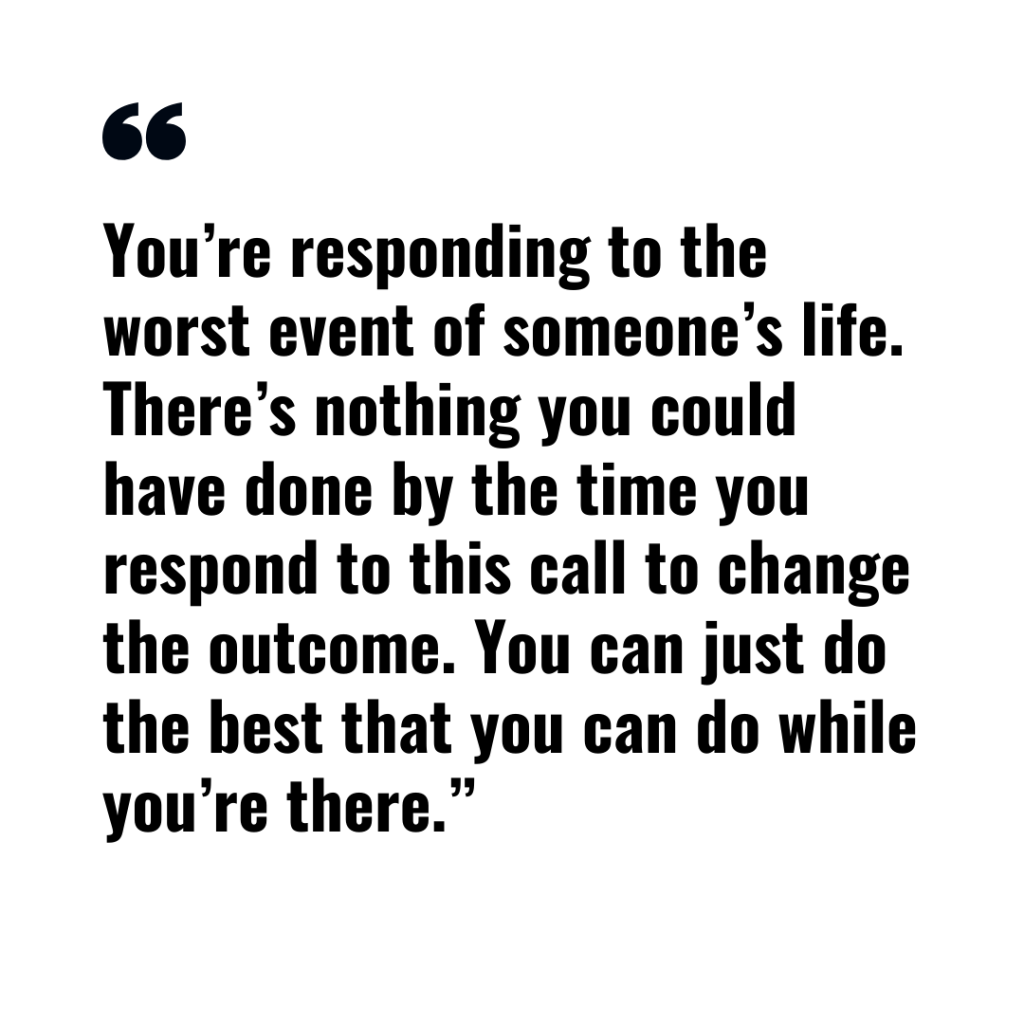“You’re responding to the worst event of someone’s life. There’s nothing you could have done by the time you respond to this call to change the outcome. You can just do the best that you can do while you’re there.”
This reminder cuts to the heart of one of the most challenging aspects of being a first responder. When you arrive on scene, the event has already happened. The car has already crashed. The heart attack has already occurred. The fire has already started. Your role isn’t to prevent what’s already taken place, it’s to respond with skill, compassion, and professionalism to help in whatever way possible.
The Weight of “What If”
First responders often carry the crushing weight of “what if” scenarios. What if you had arrived sooner? What if you had tried a different approach? What if you had made a different decision? The reality is that so much of what first responders witness is preventable tragedy. This knowledge can make processing difficult calls even harder because alongside the trauma, you’re carrying the weight of all those “what ifs.” But preventable doesn’t mean it was preventable by you, at that moment, with the information you had.
Understanding Your Response
When you’re processing a difficult call, it’s important to work through what happened without the burden of unrealistic expectations. There are unreasonable beliefs that can hold you back from healing:
- “I must always succeed”
- “I can’t show emotions on the job”
- “I should have been able to save everyone”
These beliefs set impossible standards. As Ellen Kirschman writes in her book, “No one is bigger than life, stronger than gravity, or able to defy the laws of physics. It’s simply not possible to save every building, put out every fire, or save every victim.”
When evaluating your actions after a difficult call, focus on this truth: you made split-second decisions in real-time, not with the luxury of hindsight. Stop the second-guessing. Evaluate your actions based on what you knew then, not what you know now.
Accept that perfect isn’t the goal. Even less-than-perfect actions can lead to positive outcomes. The goal isn’t to be superhuman, it’s to be human while doing an incredibly difficult job.
Healing from trauma isn’t about forgetting what happened. It’s about finding a way to carry it that doesn’t weigh you down. It’s about understanding that your reactions are normal responses to abnormal events. It’s about recognizing that seeking help isn’t a sign of weakness, it’s a sign that you’re smart enough to know when you need backup.
You did the best you could with what you had, when you had it, where you were. That’s not just enough, that’s everything. Your worth as a first responder, and as a person, isn’t determined by outcomes you couldn’t control. It’s defined by your willingness to show up, to care, and to keep serving despite the weight you carry.
If you’re struggling with the weight of difficult calls, remember that help is available. Your mental health is just as important as your physical health, and seeking support is a sign of strength, not weakness. If you need to reach out to someone, visit our Resources Page.

